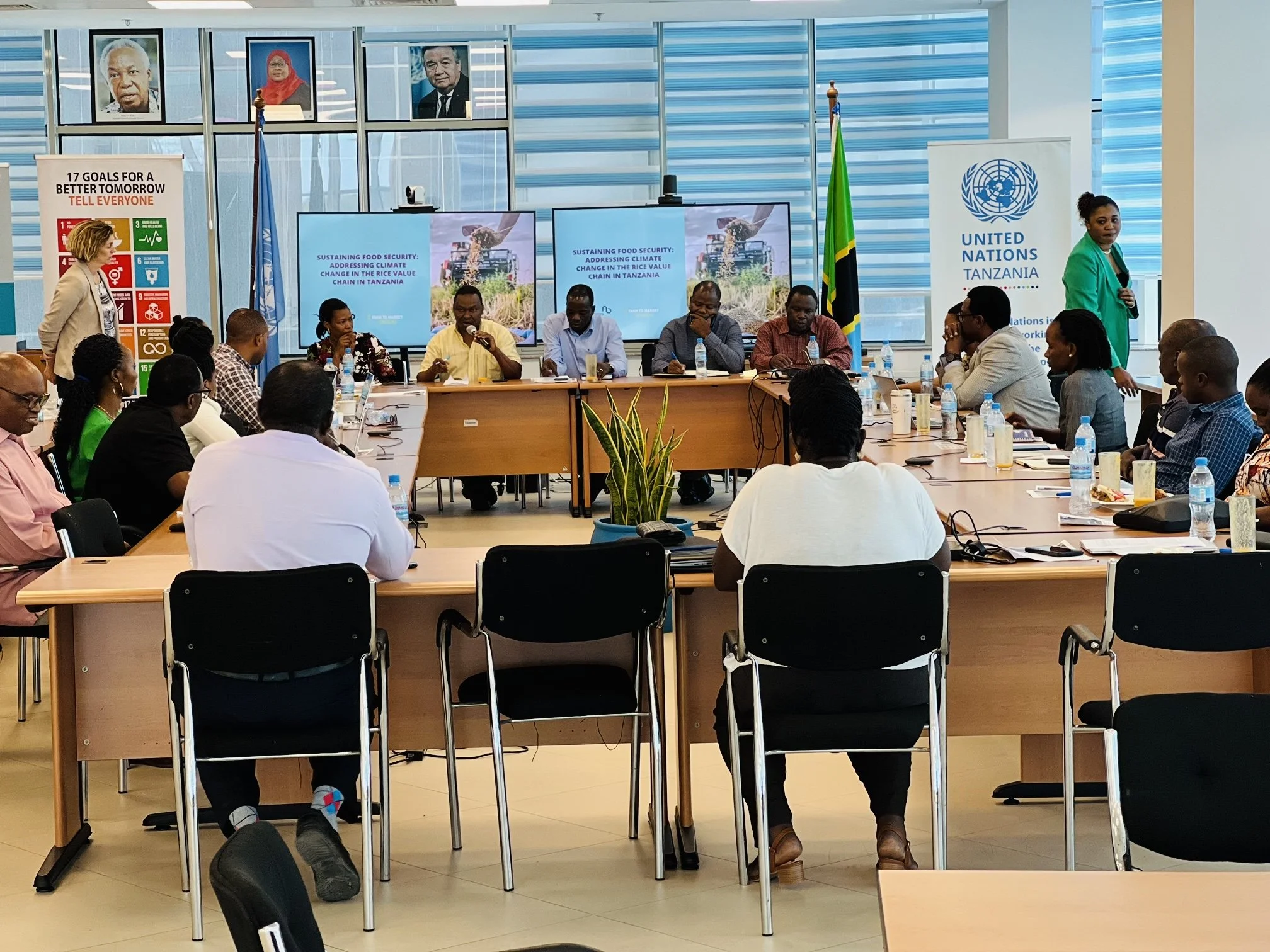News Tanzania
The Norwegian organisation The Royal Norwegian Society for Development (Norges Vel) will by this inform that contract for the external end-term review of the project «Scaling Up Profitable Aquaculture, Mozambique” running from December 2019 – June 2024 has been signed with the selected consultancy firm Imani Development (International) Ltd.
There are three exciting opportunities available to join us in making a significant impact on food security in Tanzania.
In collaboration with the Farm to Market Alliance, we organized the event “Sustaining Food Security: Addressing climate change in the rice value chain in Tanzania” on October 27th in Dar es Salaam.
In Tanzania, small-scale farmers account for nearly 70% of the country’s food production, highlighting the crucial role of agriculture in the country’s economy. With rice being one of the staple crops in the country, the rice market serves as a significant source of income for small-scale farmers.
The proportion of young people is rapidly growing across the world, and Tanzania has one of the worlds fastest growing young population. Of the estimated 60 million people in Tanzania, more than 44% of the population is under 15 years old. As agriculture remains a cornerstone of Tanzania’s economy, youth are considered to play a key role in the socio-economic development of Tanzania. But youth often find agriculture unglamorous, old-fashioned, and too hardworking. Most youth see agriculture as traditional subsistence farming, and not a business. We had a chat with Enoch Asulwisue Kasisi, a youth farmer in Mbarali, about his experience with agribusiness.
As a COMRICE participant, Elinesi Mpyanga (54) has focused on seed production, as an MTC stakeholder in production of improved seeds. MTC, The Mbarali and Neighbors Rice Farmers Trading Company is part of COMERICE’s objective to rally farmers together in a farmer-owned company that is facilitating their transition from subsistence farming to commercial business farming.
In 1997, Shukuru Abdallah and her husband began growing rice to feed their young family in Uhambule village, Mbarali, southern Tanzania. Her husband was originally a maize farmer, but Shukuru convinced him to borrow two acres of land to grow rice and beans to vary their diet and sell the surplus for a profit.
The effects of climate change in Mbarali have hurt small-scale farmers the most. With a population heavily dependent on rain for agriculture, drastic changes in rainfall patterns have translated into life-altering productivity and income losses. Farmers say they used to be able to forecast the rainy season reliably; less so over the past 10 to 20 years.
It was a clear speech by a female small-scale farmer from the Mtu kazi group. The question was why, unlike most of their neighbours, they had made the choice to become shareholders in MTC.
The involvement of women in our projects is of course about equal rights, but we want to first and foremost tell the story that it pays off, says Reinaart Pretorius, director for international development for Norges Vel’s international work.











Through Norges Vel's COMRICE project, Tanzanian women gain increased ownership and control over their own businesses. More professional rice production provides both food and a profit that contributes to the family income.